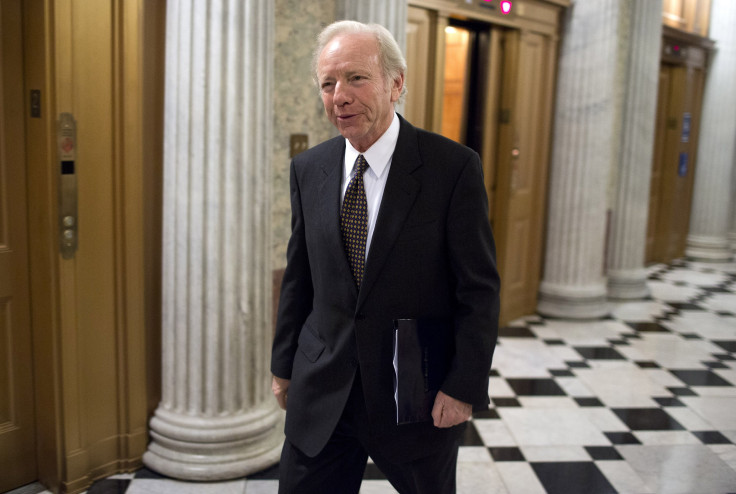Who Is David Friedman? Donald Trump's Pick For US Ambassador To Israel May Have To Temper Positions To Win Approval

A funny thing may happen on the way to David Friedman’s confirmation hearing for U.S. ambassador to Israel. Former Sen. Joe Lieberman said Thursday it’s likely Friedman will back off his most contentious views, like opposing the two-state solution.
Friedman is a conservative bankruptcy lawyer, Orthodox Jew and Israeli hardliner who has condemned Jewish peace groups. In addition to opposing the two-state solution, Friedman also has said he supports Israeli settlement activity in the West Bank, a contentious issue that has stymied peace talks.
Lieberman told CNN he thinks Friedman, like his soon-to-be boss, wants to help craft a solution to the Israeli-Palestinian conflict, which has eluded world leaders for nearly 70 years. President-elect Donald Trump nominated Friedman last week.
"I think you're going to find in the weeks ahead in the confirmation process on David Friedman that it's going to be very clear that … he and President Trump want to be part of achieving peace between Israelis and Palestinians, and that some of the things he said really don't reflect what he believes," Lieberman told CNN.
"I think you'll find along the way that he will express some regrets."
The U.N. Security Council had been scheduled to vote on a draft resolution Thursday, calling on Israel to stop all settlement activity in “Palestinian territory, including East Jerusalem.” Trump has condemned the resolution saying the only way to achieve peace is "through direct negotiations between the parties, and not through the imposition of terms by the United Nations. This puts Israel in a very poor negotiating position, and is extremely unfair to all Israelis."
Egypt blocked the vote, freeing President Barack Obama from having to act in his last month in office to protect Israel with a veto or abstain to express criticism of the settlement activity. Reuters reported Egypt put off the vote under pressure from Israel to avoid alienating Trump. Egyptian President Abdel Fattah al-Sisi spoke with Trump Thursday, a transition official said.
Lieberman said, however, he thinks peace between Israel and its Arab neighbors is closer than ever, given both sides’ concerns about Iran.
“They have common interests. But the Arab nations won't come out with this closer relationship to Israel, in my opinion, unless there's progress between the Israelis and Palestinians," the former Democratic vice presidential candidate said.
Trump has taken no clear position on the two-state solution beyond saying he would like to be the one to broker a deal, and he favors moving the U.S. Embassy from Tel Aviv to Jerusalem. Israeli Ambassador to the United States Ron Dermer said earlier this week moving the embassy would send a strong message against efforts to delegitimize the Jewish State, Politico reported.
“The second reason why I think the embassy should be moved to our capital is that it would be a great step forward to peace. That's right. A great step forward to peace," he said.
Congress has long favored moving the embassy but presidents have resisted, insisting the status of Jerusalem needs to be part of an overall settlement.
Palestinian negotiator Saeb Erekat has warned moving the embassy would kill what’s left of the peace process.
“[In] the peace process, the issues for negotiations [are]: Jerusalem, borders, settlements, the regime, security… and no one should pre-empt or prejudge, because this will be a destruction of the peace process as a whole,” Erekat said.
© Copyright IBTimes 2024. All rights reserved.












